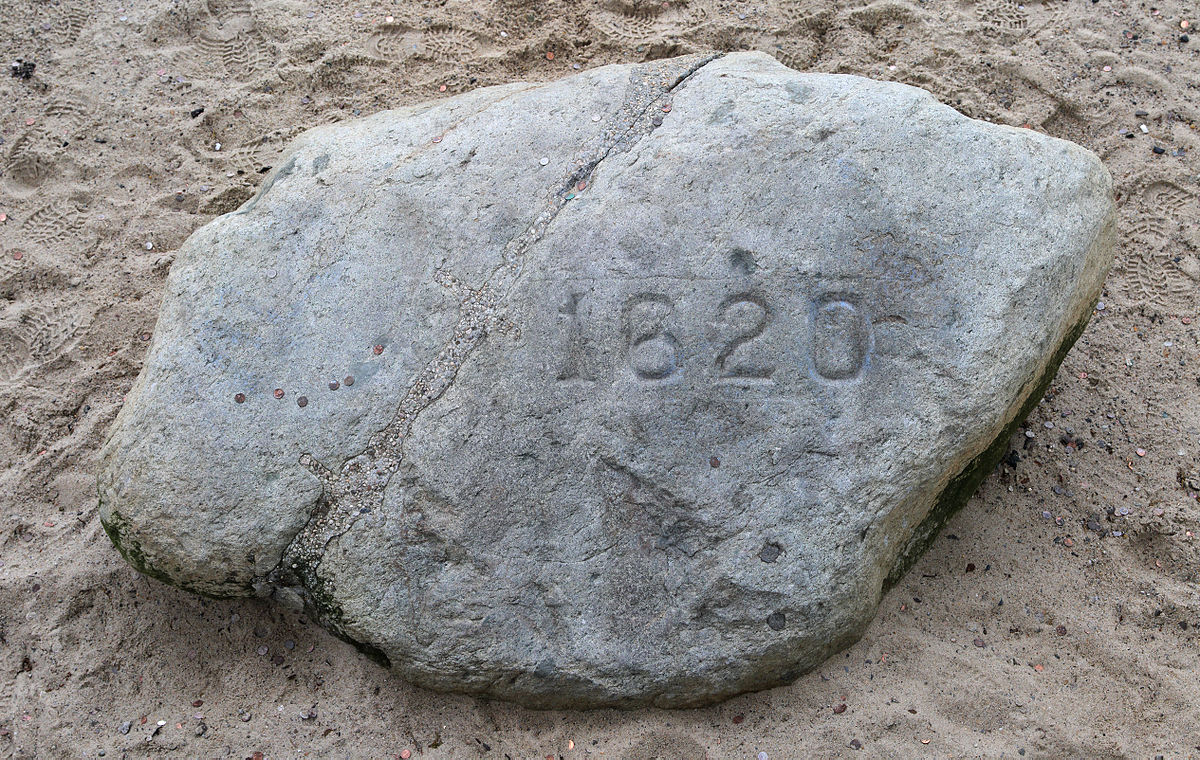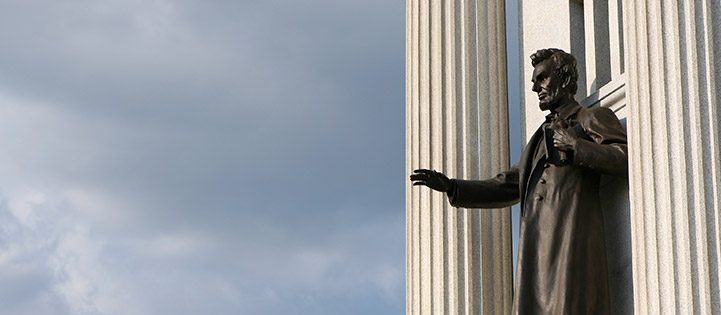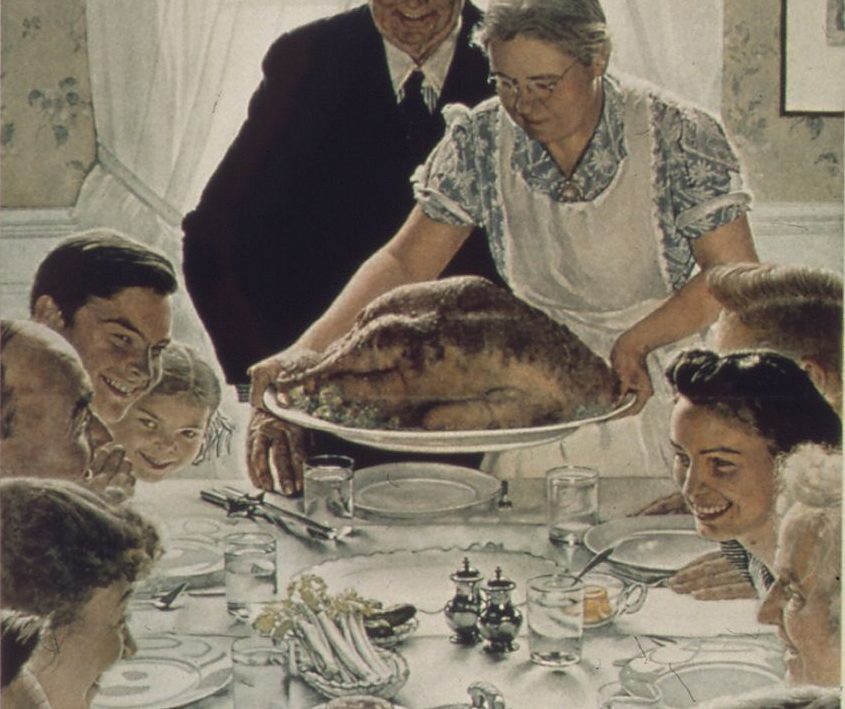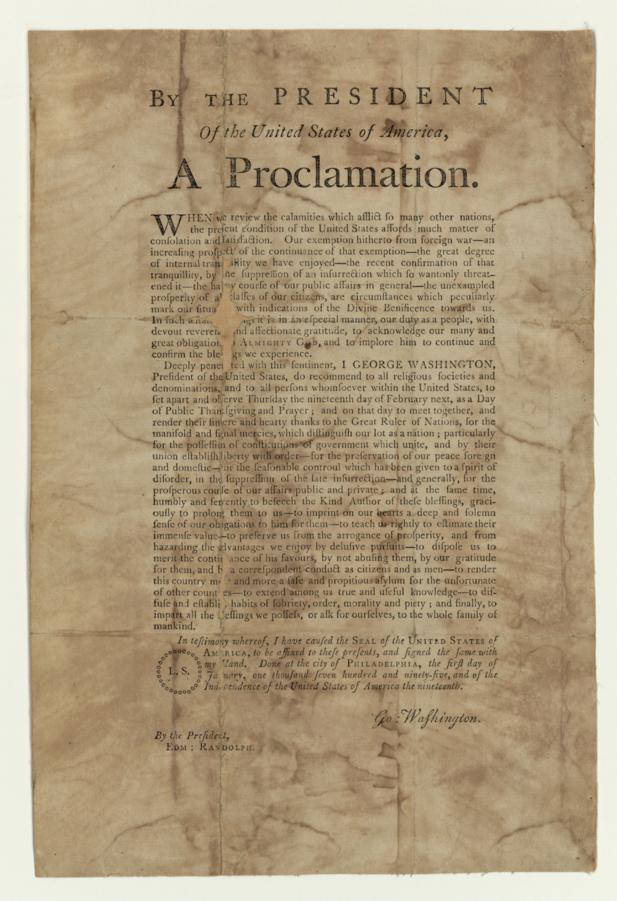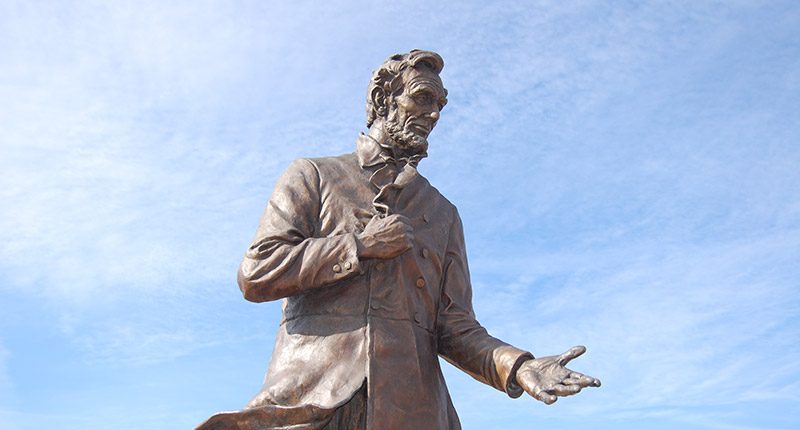Thanksgiving Wasn't Always a Source of National Unity.
Thanks, For What?
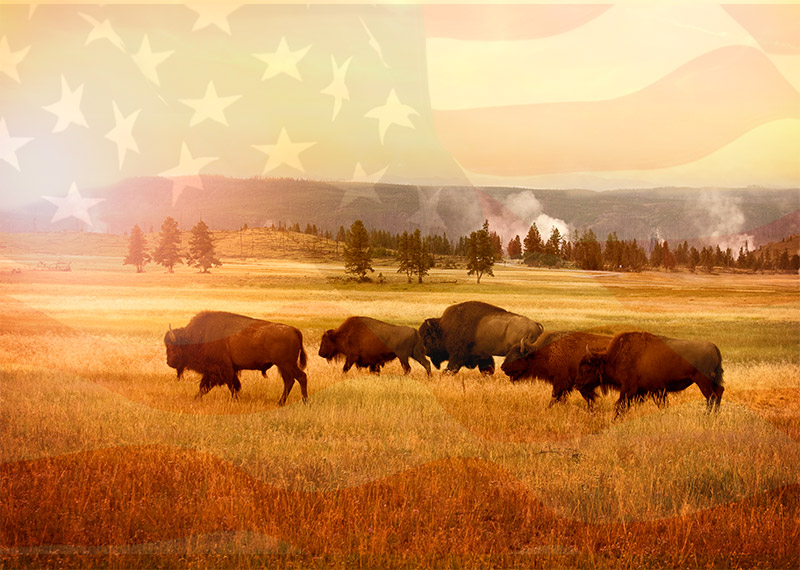
Lincoln believed us to be the "almost chosen people." We do well to give God thanks for His unique blessings upon us.
“It is meet, right and salutary at all times and in all places to give thanks to you, o Lord, holy Father, everlasting God.” Every Christian in every land knows that thanking God for the very Grace that “hath created and doth sustain us” is the foremost act of prayer. Yet just one people, Americans of all confessions and none, have set aside a day for national Thanksgiving. Christians started this civil-political tradition, Jews went along naturally, and the others more or less followed. But for what are we to give thanks?
Every Thanksgiving, the Wall Street Journal publishes two editorials: “The Desolate Wilderness,” a Pilgrim’s fears of a cold land full of “wilde beasts and wilde men,” and “The Fair Land,” a later account of how human effort had turned the same land into a cornucopia. But it did not take long for the very first settlers to realize how very good life can be here. Unlike in Europe, no one able to wield an axe endured cold. Until the first harvest, they had to learn to eat those awful lobsters that littered the beaches. But ordinary people in the colonies ate so much better than their Europeans counterparts, that by the time of the Revolution, American soldiers were two inches taller on average than their opponents. And as the Lewis and Clark expedition crossed an unknown continent, they lived mostly on the choicest cuts of buffalo and elk, as well as on salmon and trout.
Sure, “amber waves of grain” are the work of our hands, and sure, other peoples have made much less of equally bountiful lands—just look at Argentina. So we get credit for our labor and for our behavior. But regardless of what proportion of credit anyone assigns to nature and to system, oh, what a blessing this America is! It takes more stupidity and ill will than most people are capable of to deny that we are beneficiaries of the circumstances that have placed us here. Hence, the case for giving thanks—if only by consecrating a bountiful dinner—makes itself. But that is just the beginning.
For the deepest source of American Thanksgiving, we must look beyond gratitude for food and freedom, to our very civilization’s founding documents—the ones which make sense of our way of life and of the Declaration of Independence which affirms it: the books of Genesis and Deuteronomy. We know ourselves to be equally created in the image and likeness of God, and like to believe that almost like the Children of Israel, we have been chosen for the special privilege of dwelling in a special land, to carry out a special mission. Americans, who Lincoln called the “almost chosen people,” must ever thank God for His unique blessings while asking for the Grace to do so with proper obedience.
From John Winthrop in the early seventeenth century to John F. Kennedy and Ronald Reagan in the late twentieth, Moses’ words in Deuteronomy seemed to have been written for Americans. In Chapter 26, Moses says:
“And it shall be when thou art come unto the land which the Lord thy God giveth thee for an inheritance…that thou shalt take of the first of all the fruit of the earth…and thou shalt rejoice in every good thing that the Lord thy God hath given unto thee…and hast given it unto the Levite and the stranger, and the fatherless, and the widow that they may eat within thy gates and be filled…. Thou hast avouched the Lord this day to be thy God and to walk in his ways, and to keep his statues and his commandments, and to harken unto his voice…. And the lord hath avouched thee this day to be his peculiar people…and to make thee high above all nations which he hath made…and that thou mayest be an holy people unto the Lord the God as he hath spoken.”
And then, Chapter 28’s double-edged sword:
“And it shall come to pass that if thou shalt harken diligently unto the voice of the Lord thy God, to observe and to do all his commandments…all these blessings shall come on thee and overtake thee…and all people of the earth shall see that thou art called by the name of the Lord…. But it shall come to pass if thou wilt not harken unto voice of the Lord thy God to observe to do all his commandments and statutes…that all these curses shall come upon you and overtake you…. The Lord shall send upon thee cursing vexation, and rebuke…until thou be destroyed and until thou perish quickly; because of the wickedness of thy doings, whereby thou hast forsaken me.”
The Jews have mused over millennia: maybe it would have been better for us if God had chosen another people to be his own. But they had no choice. Today’s Americans don’t have much more. The choice to come to these shores with a certain idea of God’s relationship to man was made long ago. Succeeding generations reaffirmed that choice and persisted in that understanding. The blessings of economic plenty and of historically incomparable freedom have followed. As heirs to that choice and understanding, we can make it our own, reject it, or just eat.
As we look at that turkey, as we decide what to say and what to think about Thanksgiving, we would do well to reflect on how unique this country is, and this holiday, and to pray that all may do what is necessary to preserve it.
The American Mind presents a range of perspectives. Views are writers’ own and do not necessarily represent those of The Claremont Institute.
The American Mind is a publication of the Claremont Institute, a non-profit 501(c)(3) organization, dedicated to restoring the principles of the American Founding to their rightful, preeminent authority in our national life. Interested in supporting our work? Gifts to the Claremont Institute are tax-deductible.
How Abraham Lincoln created Thanksgiving.
Thanksgiving remains one of our few unifying traditions.
We should be thankful for the sheer wonder of being.
The Genuinely American Debate over Federalism and Thanksgiving.
Allen Guelzo, Richard Brookhiser, Joseph Bottum, and Justin Dyer on the thought and action of Lincoln's Thanksgiving and his wrestling with God.

